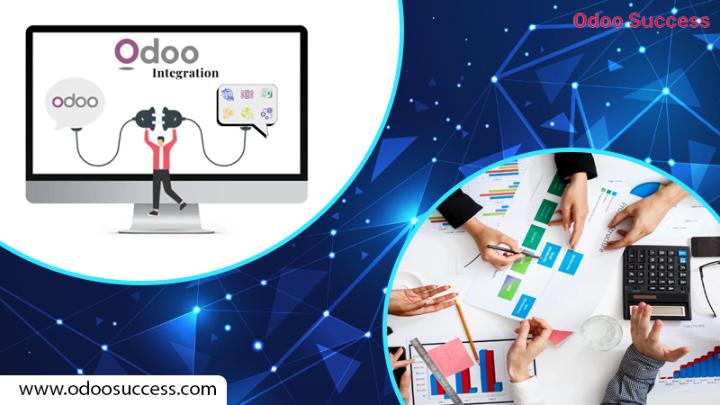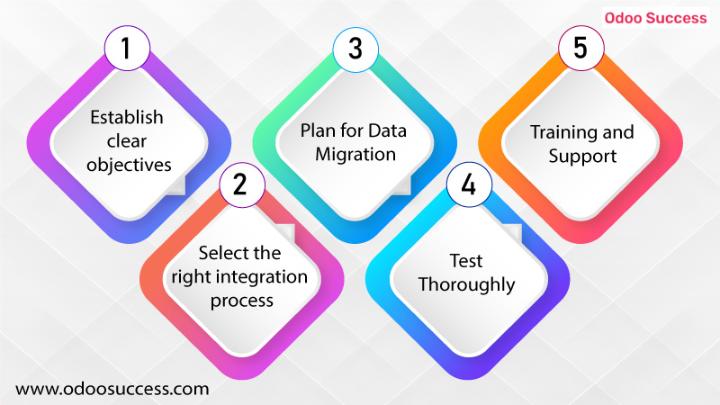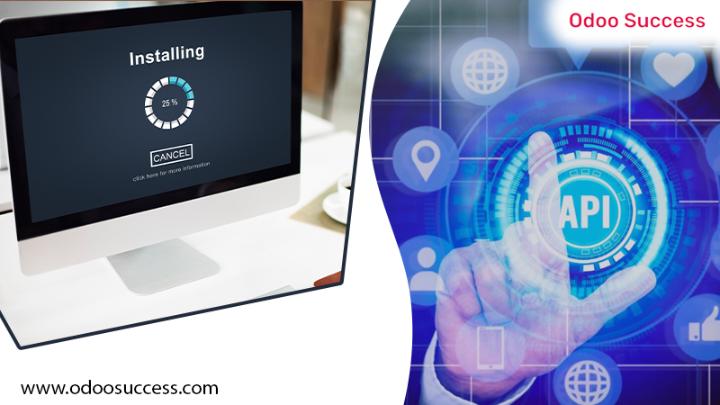Odoo Integrations: Unlocking Business Potential with Seamless ERP
As businesses continue to adapt to today's ever-changing reality, more organizations are turning to Enterprise Resource Planning (ERP) systems to improve operations, productivity, and growth. With so many different ERP solutions for businesses to consider, Odoo stands out as a flexible, scalable platform that enables organizations to utilize a wide range of applications to manage specific business units. However, the true strength of Odoo is only realized with integrations with other systems and applications, which ultimately creates an all-encompassing ecosystem of efficiency and innovation.

What is Odoo Integrations
Odoo is an open-source ERP that has numerous applications covering a variety of business domains, which include sales, inventory, accounting, manufacturing, recruitment, and human resources. Odoo allows businesses to personalize their ERP system as a modular system, an appealing characteristic to many organizations. To take advantage of Odoo's full capabilities, however, businesses can proceed with integrations in order to help their businesses, and inevitably, the value of Odoo increases through integrations.
Integrations allow for information to flow uninterrupted between Odoo and outside systems, ultimately eliminating the burden of manual data entry and reducing the risk of significant errors. For example, being able to link Odoo with external e-commerce platforms, such as Shopify or Magento, and continue to monitor and synchronize product information, orders, and customer information, will be done in real-time with near-real-time accuracy. Similarly, organizations utilizing Odoo's accounting functions can simply connect Odoo's information with either QuickBooks, Xero, or any accounting software, while maintaining accurate financials and compliance with all regulations.
The Value of Successful Odoo Integrations
There are many benefits of successful Odoo integrations for companies, such as:
Improved Efficiency: Automating the exchange of information between systems requires less manual effort and speeds up the business process.
Better Accuracy: Real-time data syncing helps minimize errors and discrepancies.
Better Decision Making: Integrated systems provide a complete overview to help make decisions.
Scalability: Integrated systems help businesses scale without replacing large portions of a system.
Cost Savings: Effectively improving workflows and minimizing manual tasks creates efficiencies that save costs.
Best Practices for Odoo Integration Success
To have successful Odoo integrations, it takes significant planning, development, and execution. Here are some best practices to follow in achieving a successful integration process:

1. Establish clear objectives
When beginning with an integration, it is crucial to establish clear objectives. That means understanding what specific issues you are looking to resolve and what result you want from the integration. Are you trying to improve inventory management? Enhance customer service? Streamline financials? You can now transition into establishing a new baseline that can measure both the success and improvement of the integration process.
2. Select the right integration process
As discussed previously, Odoo has various integration methods, including:
APIs (Application Programming Interfaces): These are approaches that enable systems to communicate directly with each other. This allows multiple applications to interact with Odoo, even if you have various systems.
Middleware: A process to pass data through third-party software that communicates with both applications, Odoo, and your external applications. Most middleware solutions allow for two-way communication.
Pre-built Connectors: These are solutions that can connect Odoo to many popular third-party applications. They provide an off-the-shelf type of solution, meaning you do not have to worry about the development aspect of the integrations.
Ultimately, what form of integration process you select will depend on many factors; for example, the complexity of the systems to be connected, the amount of data being exchanged, and how much custom development you will need to complete to effect a successful integration.
3. Plan for Data Migration
Data migration plays an important role in any integration project. You want to make sure the data generated in the legacy system is migrated and accurately loaded into Odoo. Data migration entails documenting the mapping of data fields, cleansing the data, properly conducting testing, and troubleshooting any issues before going live.
4. Test Thoroughly
Testing is an important aspect to make sure you are confident that the integration is working properly. Testing is crucial to validate the accuracy of data, assess system performance, adequacy of workflows, and assess employee engagement (involve your users). Involve stakeholders in the testing so you receive positive feedback, and if necessary, have the opportunity to make alterations.
5. Training and Support
Integration is more than just a technical implementation; it's also making sure users are capable of leveraging the new system. Train employees how to operate the integrated Odoo system, and offer help with any problems that arise or questions users may have once deployed and used.

The Role of Odoo Success in Integration
At Odoo Success, we strive to make sure that businesses realize the best value out of their Odoo integrations. We accomplish this by:
Detailed Consulting: Discovering various aspects of your business needs and goals to set up your integration correctly.
Professional Installation: We have experienced and professional integration of your Odoo environment.
As the integration is implemented, we provide ongoing support to ensure that the integrated system adapts to the changing needs of your business.
Conclusion
The goal of an Odoo integration encompasses more than the joining of software; it is about creating a connected ecosystem to move the business into higher levels of growth and efficiency. Business wants to embrace the best practices of Odoo and has no boundaries to what can be built on the Odoo product. Best practices don't offer all solutions, but they allow a business to use its Odoo implementation.
As for Businesses that want to realize their Odoo integration, Odoo Success may offer solutions for the business to make it successful.
Is the business looking for an Odoo implementation or support? O2B Technologies is a certified Odoo ERP implementation partner. We offer world-class business solutions for every industry.
Frequently Asked Questions
1. What is Odoo integration?
Odoo integration refers to connecting Odoo ERP with another software system for the purpose of sharing data and eventually automating business processes together.
2. Why is Odoo integration important?
As Odoo incorporates and integrates with other systems, there is a general improvement in effectiveness, accuracy, and scalability, which leads to optimisation of workflow and enhanced decision making.
3. How long does an Odoo integration take?
An Odoo integration project can take anywhere from a few weeks to a few months, depending on the relative complexity of the systems, the level of integration, and the readiness of the company for implementation.
4. Can Odoo integrate with third-party applications?
Odoo can integrate with third-party applications in a number of ways, including APIs, middleware, and pre-cut connectors associated with third-party applications.
5. What support is there after integration?
Post-integration support will involve user training, troubleshooting issues that may occur, system upgrades for existing users, and maintenance support to ensure that the integrated system will work as required.